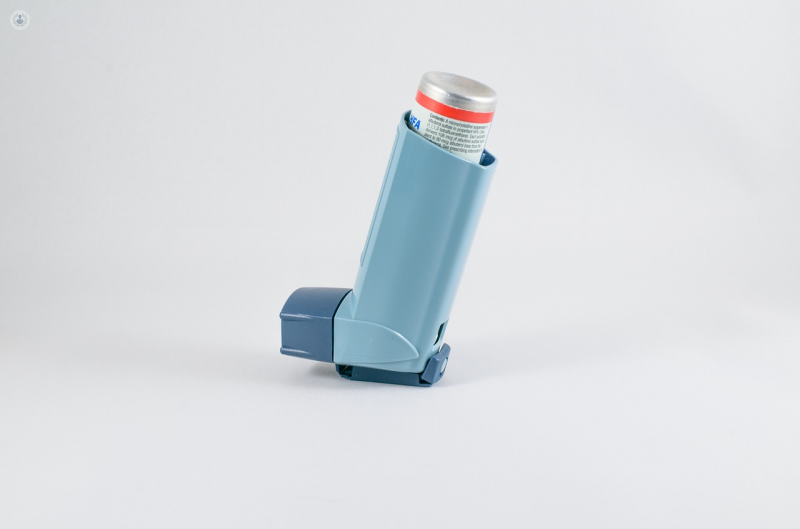Asthma: who does it affect – and why?
Escrito por:It’s the hottest week of the year so far in the UK, but with high pollen counts it’s bad news for those living with hay fever or allergic asthma. But why are some of us affected, and not others? Why do the symptoms sometimes get worse? In this article, expert respiratory physician Dr Syed Arshad Husain explains our current understanding of the causes of asthma.

What is asthma?
Asthma is a common inflammatory condition involving a narrowing of the airways of the lungs. This causes symptoms such as shortness of breath, coughing, or wheezing.
According to the World Health Organisation, globally there are 300 million people living with asthma, and by 2025 this will rise to 400 million. More than 15% of people in the UK are affected.
Most of the time asthma is a chronic condition, but sometimes children who are affected at a young age can grow out of the illness. Asthma can also occur later in life – this is known as late onset asthma.
Asthma could also be broadly categorised as mild, moderate or severe, depending on the symptoms present.
What are the symptoms?
Common symptoms of asthma include:
- cough, with or without whitish sputum
- shortness of breath
- wheezing (i.e musical sounds coming from the chest)
- chest tightness
Of course, someone might have a combination of these symptoms.
Night-time symptoms – especially coughing – are very suggestive of poor control in asthma, so if you’re getting symptoms at night you should seek help with your doctor when these symptoms occur.
What causes asthma?
Asthma is thought to have both genetic as well as environmental causative factors.
Asthma can run in families and these are usually atopic families or individuals having other allergic conditions like hay fever, eczema or allergic rhinitis. Other patients who get asthma are children with bronchiolitis and common childhood infections, low birth weight and prematurely born babies.
As for environmental factors, children of mothers who smoke during pregnancy could get asthma. Environmental pollution seems to be an important factor. It has also been observed that asthma is more prevalent among people who live in urban areas, and one suggestion is that asthma occurs in people who have weaker immune systems due to fewer infections in childhood.
Finally, asthma could be partly occupational – affecting in particular individuals who are exposed to chemicals, do soldering work, or work in a bakery.
What can trigger symptoms or make them worse?
An important indicator of asthma is variability of symptoms. Symptoms can get worse with change of temperatures - i.e going from a cold room to a hot room and vice-versa – or with use of perfumes, deodorants or strong odours.
Various common allergens which could precipitate or trigger this condition include:
- dusty environments
- pets i.e cats
- exercises
- environments with dampness
- medications like beta blockers, or non-steroid anti-inflammatory tablets
In rare cases, we have even seen symptoms brought on by thunder and lightning!
What’s the outlook?
Asthma is a chronic condition, so it can’t be cured completely but symptoms could be well controlled
However, symptoms can be controlled very well with appropriate treatment, so it is a benign condition and can vary from being good on a particular day to being bad on another day. Only when uncontrolled or not treated appropriately does asthma lead to deaths in young patients.
Therefore, it’s important to adhere to treatment plans given by clinicians, and to seek urgent help when your asthma isn’t under good control.
We’ll be covering treatment for asthma in the next article from Dr Husain. If you’re concerned that you or your child might be affected by asthma, book a consultation with Dr Husain today.



